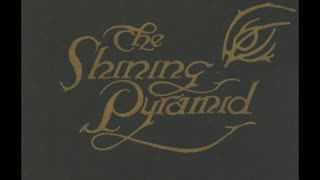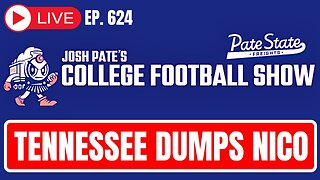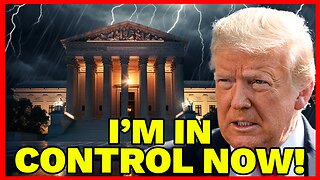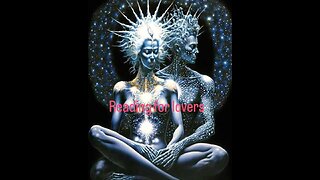Premium Only Content

Humanum Genus (On Freemasonry) April 20, 1884 PART 3/4, Sections 36-50
In Part 3 of Humanum Genus, covering Sections 36-50, Pope Leo XIII further develops his arguments against Freemasonry, focusing on the broader implications for society and the Church:
1. Masonic Corruption
Pope Leo XIII discusses how Freemasonry corrupts public morals and institutions. He argues that the Masonic agenda undermines societal ethics and contributes to moral decay by promoting secular and relativistic values.
2. Freemasonry and the Family
The Pope explores the impact of Freemasonry on the institution of the family. He contends that Masonic ideology seeks to weaken the traditional family structure and family values by promoting alternative social norms.
3. Education and Freemasonry
Sections 36-50 address the influence of Freemasonry in educational systems. Leo XIII critiques the way Masonic principles are integrated into educational curricula, which he believes leads to the erosion of religious and moral instruction.
4. Legal and Political Systems
The Pope evaluates the extent to which Freemasonry has influenced legal and political systems. He asserts that Masonic ideals often lead to the enactment of laws and policies that conflict with Christian teachings and undermine the Church's authority.
5. Responses and Remedies
In this part, Leo XIII offers strategies for countering the influence of Freemasonry. He calls for vigilance and action from the Church and its followers to resist Masonic infiltration and uphold Christian values.
6. Masonic Rites and Symbols
The Pope provides an analysis of Masonic rites, symbols, and ceremonies, arguing that they are inherently opposed to Christian teachings. He discusses how these rituals often contain hidden meanings that conflict with religious principles.
7. Ecclesiastical Cautions
Leo XIII emphasizes the importance of maintaining ecclesiastical integrity and cautions against any form of compromise or accommodation with Masonic groups. He underscores the need for the Church to remain steadfast in its doctrines and practices.
8. The Final Judgment
Sections 36-50 conclude with a reflection on the ultimate judgment of Freemasonry and its impact on society. The Pope stresses the need for moral and spiritual vigilance to ensure that the Christian faith remains untainted by Masonic influences.
This part of the encyclical reinforces Pope Leo XIII's condemnation of Freemasonry and outlines the broader implications of its presence and activities within society and the Church.
About the Author:
Pope Leo XIII (1810-1903), born Vincenzo Gioacchino Raffaele Luigi Pecci on March 2, 1810, in Carpineto Romano, Italy, served as the 226th Pope of the Roman Catholic Church from 1878 until his death in 1903. His papacy is noted for its significant contributions to Catholic social teaching and its engagement with contemporary social and political issues.
Leo XIII was educated at the Roman Seminary and later at the Pontifical Gregorian University, where he developed a deep understanding of philosophy, theology, and law. He was ordained a priest in 1837 and embarked on a career that saw him rise through various ecclesiastical positions, including bishop of Perugia and cardinal.
Pope Leo XIII is best known for his social encyclicals, particularly *Rerum Novarum* (1891), which addressed the conditions of the working classes and set forth the Church’s stance on social justice, labor rights, and the role of the state in economic matters. This encyclical marked the beginning of modern Catholic social teaching.
His works include substantial theological writings and commentaries on Church doctrine. Humanum Genus (1884), his encyclical against Freemasonry, reflects his concerns about the moral and philosophical challenges posed by secret societies and their influence on society and the Church.
Leo XIII worked to restore the authority of the papacy and the influence of the Church in a rapidly changing world. His papacy was marked by efforts to address modernity, secularism, and the shifting political landscape of the late 19th century.
Leo XIII was known for his opposition to modernist trends within the Church, advocating instead for traditional doctrines and practices. His encyclicals often criticized secularism and liberalism, which he viewed as threats to Christian values.
Humanum Genus specifically addresses his concerns about Freemasonry and other secret societies, which he believed were undermining Christian values and Church authority. His criticism was rooted in a broader defense of Church doctrine against what he saw as subversive influences.
Pope Leo XIII’s papacy left a lasting impact on the Catholic Church’s approach to social issues and its engagement with modernity. His teachings continue to influence Catholic thought on social justice, the role of the Church in public life, and the Church’s relationship with secular ideologies. He died on July 20, 1903, and was succeeded by Pope Pius X.
-
 8:23:30
8:23:30
Deus Meum Que Jus
9 days agoThe Shining Pyramid: The Definitive Edition by: Arthur Machen
366 -
 1:14:47
1:14:47
Josh Pate's College Football Show
8 hours ago $6.01 earnedTennessee & Nico Disaster | Portal Chaos Ahead | Biggest “What-Ifs” | Truth About Big Noon Kickoff
49K6 -
 2:14:43
2:14:43
Tundra Tactical
8 hours ago $6.02 earned$3200 ZEV HEARTBREAKER Contest!!! TONIGHT On The Worlds Okayest Gun Live Stream
47.3K2 -
 3:52:05
3:52:05
IcyFPS
6 hours ago🟢SOLO LEVELING LIVE 🟢 PREMIUM PAYDAY | SUNDAY GUNDAY |
29.9K2 -
 3:49:54
3:49:54
Damysus Gaming
6 hours agoWeaving into the Deep South: South of Midnight First Play!
26.4K3 -
 5:24:51
5:24:51
EricJohnPizzaArtist
8 hours agoAwesome Sauce PIZZA ART LIVE Ep. #43: Misses Ma’am!
38.1K6 -
 54:59
54:59
Stephen Gardner
12 hours ago🔥Biden insider: Obama was Pulling Strings | Trump Derangement is RAGING!
81.3K278 -
 5:51:22
5:51:22
Delnorin Games
9 hours ago🔴 Live - Star Citizen
42K -
 1:07:23
1:07:23
Vedic compatability astrology
7 hours agoDiscover Wisdom from Dr. Andrew Dutta!
22.6K -
 4:52:51
4:52:51
LFA TV
1 day agoLFA TV SHORT CLIPS OF THE WEEK!
74.4K9